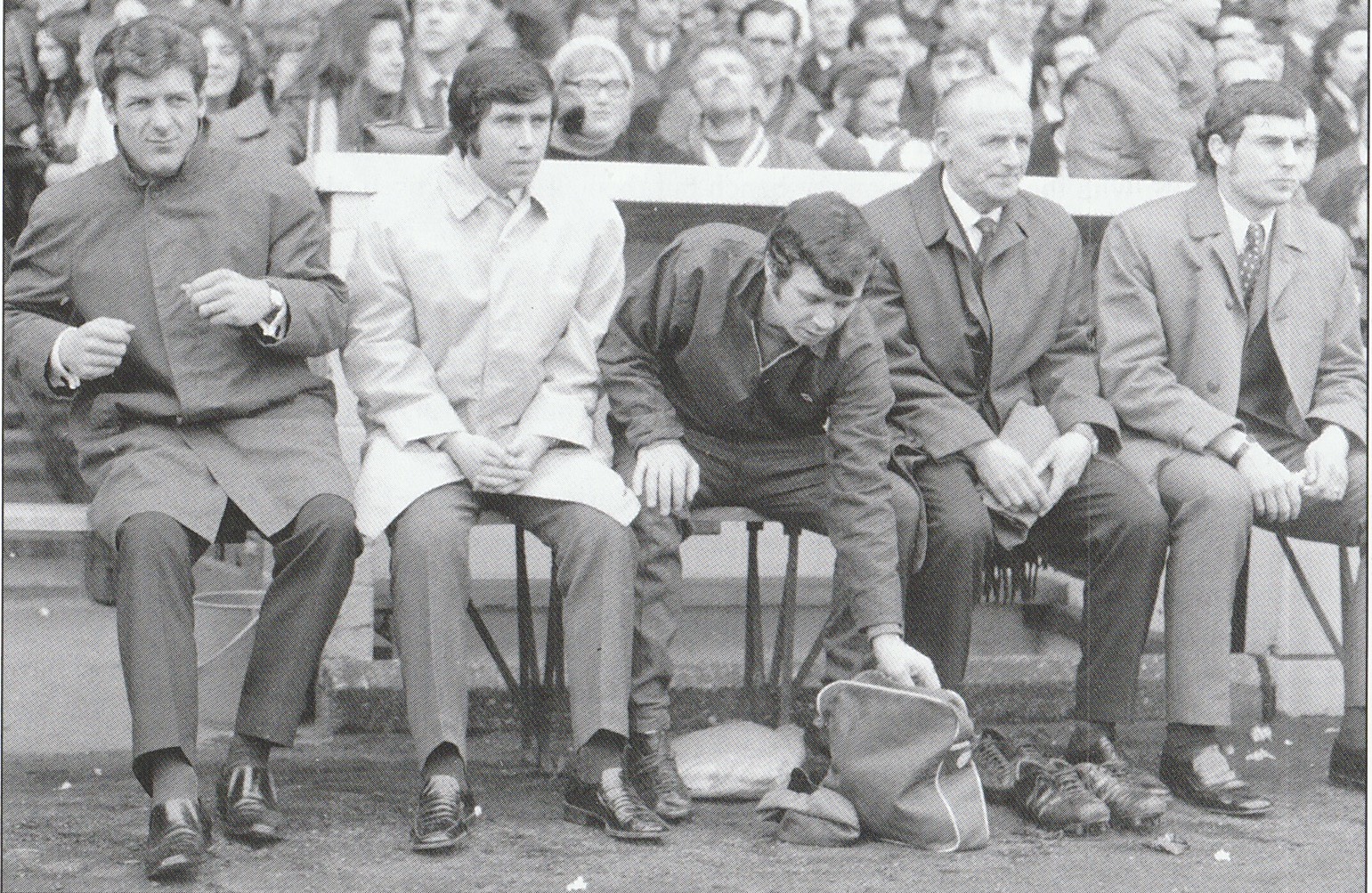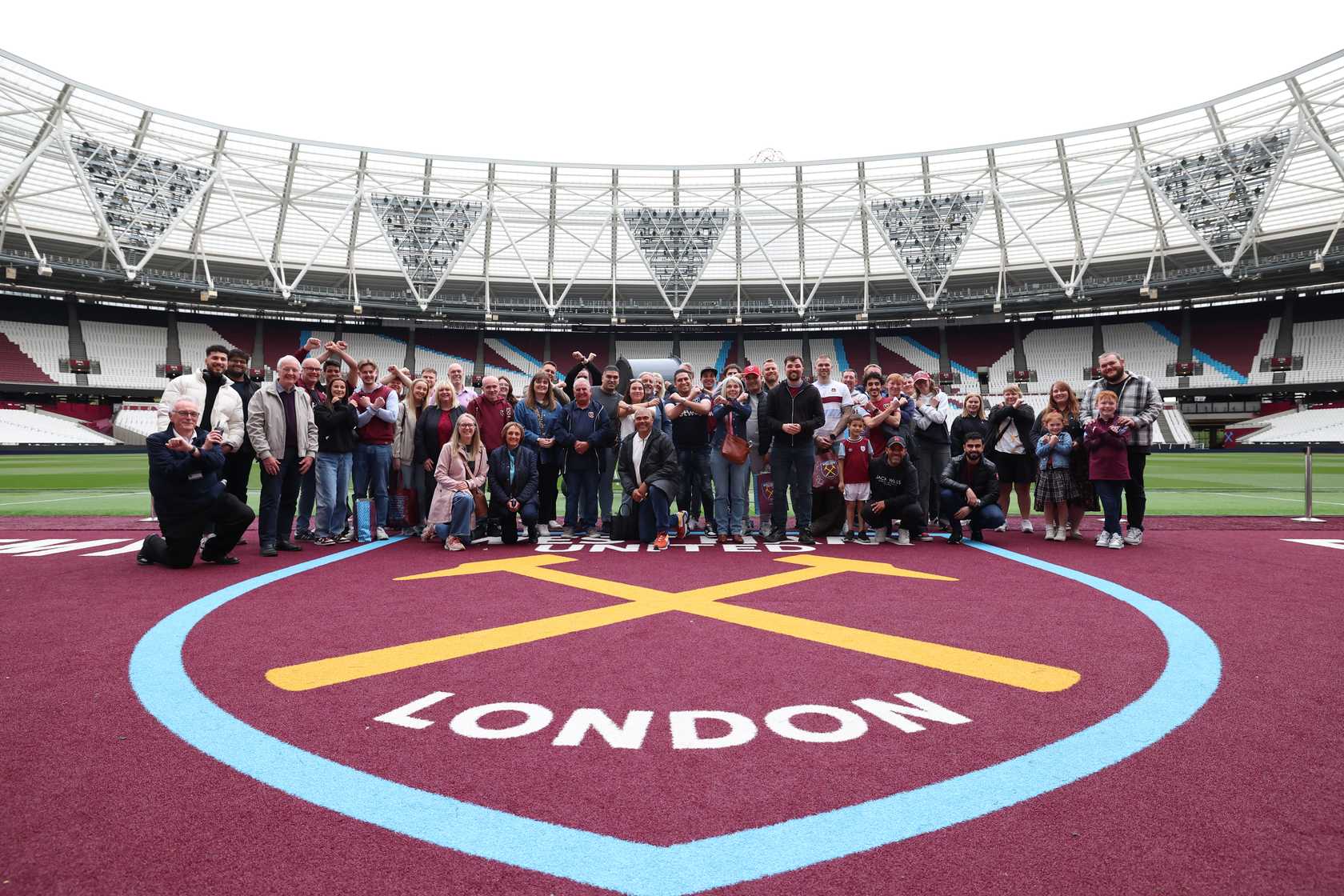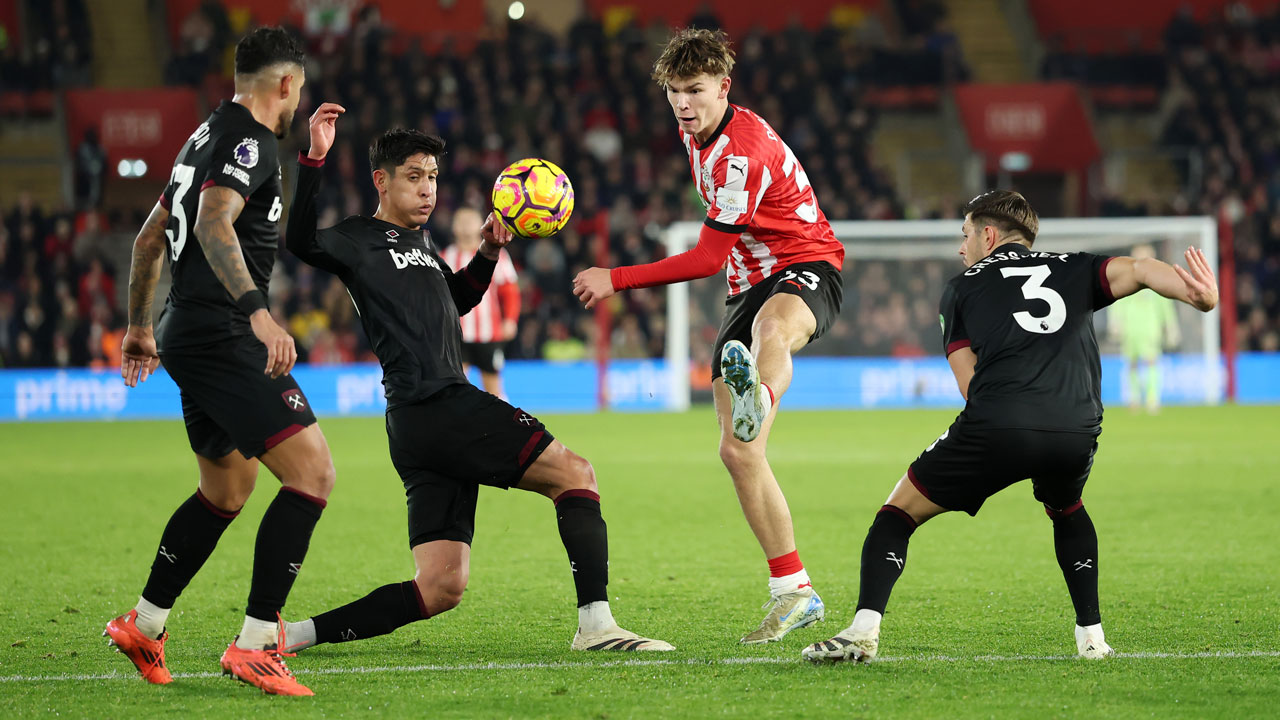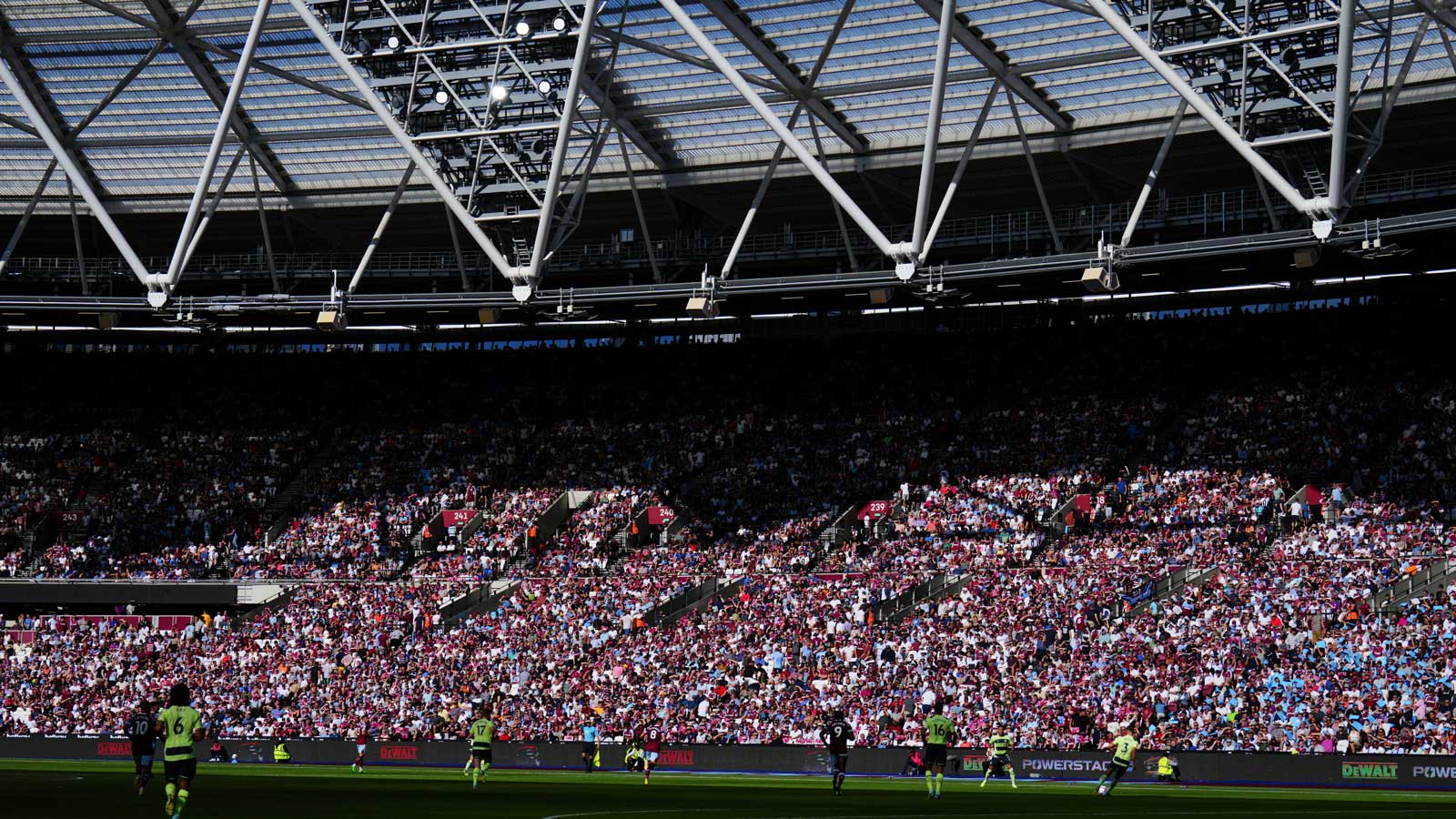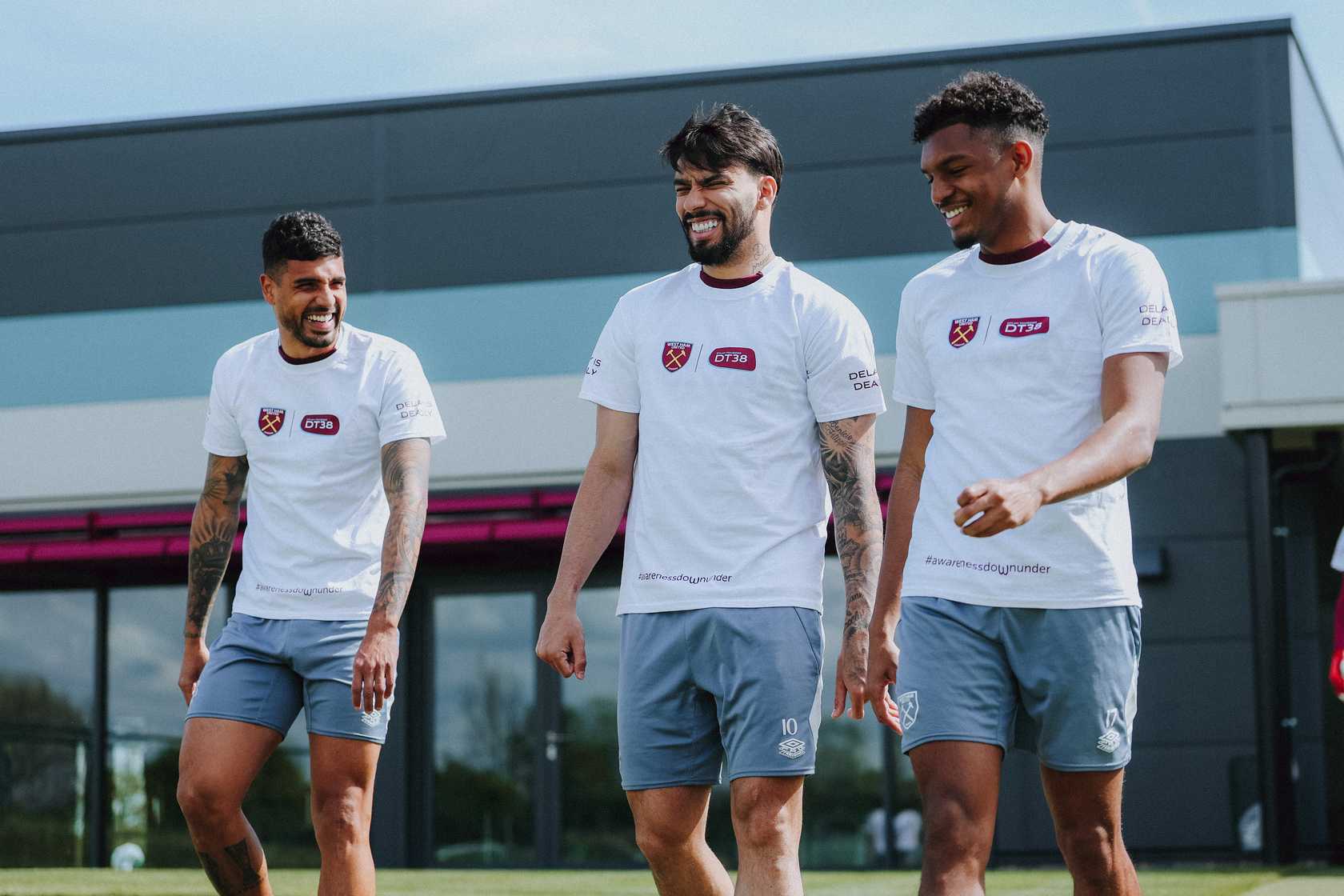Continuing our series commemorating the 50th-anniversary of the Club’s fantastic FA Cup final triumph over Fulham, former physiotherapist ROB JENKINS recalls his races against time to get the Hammers squad fit and on the road to Wembley glory…
Eight father and son combinations have represented the Hammers throughout the Club's illustrious 130-year history.
The families Barrett, Brown, Lampard, Lansdowne, Lee, Martin, Moncur and Potts have each seen two generations of footballers pull on the famous Claret and Blue.
But behind-the-scenes, a ninth-duo also made a considerable contribution to the cause across four decades, helping three-times winners - West Ham United - to FA Cup glory in 1964, 1975 and 1980.
Step forward Club physiotherapists, Bill and Rob Jenkins, whose presence in the treatment room helped bring the famous old trophy back to the Boleyn Ground every time.
“Dad was brought up in the Rhondda Valley and rather than go down the Welsh coal-mines, he joined the Army Medical Corps,” explains Rob, who was fittingly born in the military town of Aldershot one year before the outbreak of World War II. “We ended up in Egypt before evacuating to South Africa. Then, coming back to England, we lived in Monniker Road, East Ham, where I still remember the humming of those German Doodlebug flying bombs and hurrying down into the underground air-raid shelters. Aged six, it was so frightening.”
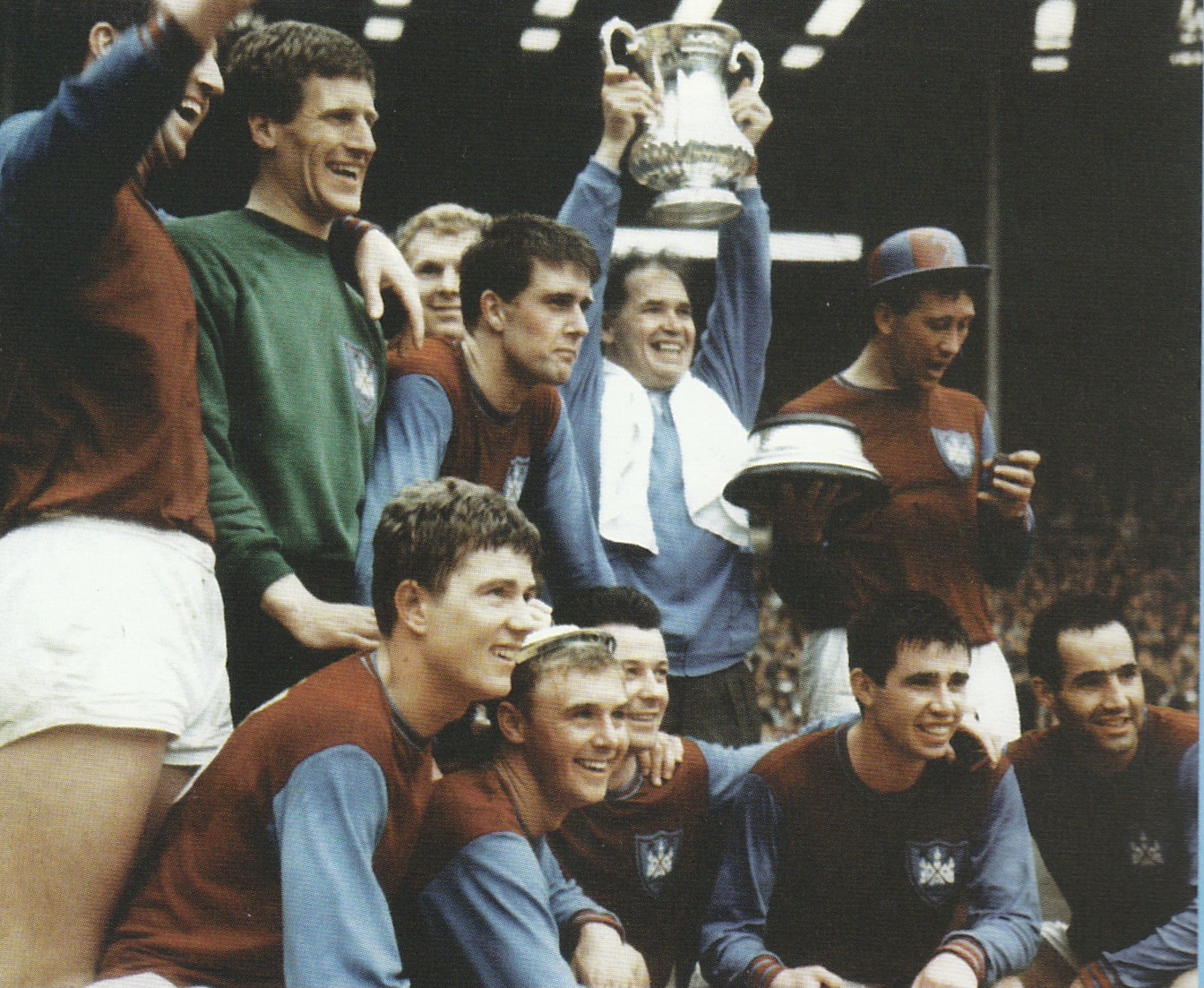
Doing well at school, Rob had planned to study dentistry at Sheffield University before deciding to follow in his father’s tracks and opt for the West London School of Physiotherapy, instead.
“Historically, football clubs had just used ‘trainers’ - retired players with water buckets and ‘magic’ sponges - but by the early 1960s things started changing,” he says. “Qualified people became involved and, although it was nothing like today’s sports science, things became much more professional.
“Dad’s Green Street surgery was above Bobby Moore’s sports shop - bang opposite the Boleyn Ground gates - and West Ham brought him onto the staff, while I became his apprentice learning my trade with Clapton FC at their Old Spotted Dog Ground.
“I then moved to Walthamstow Avenue and, reaching the 1961 FA Amateur Cup final, we defeated West Auckland Town. I actually beat Dad to Wembley!”
But Bill’s own Twin Towers triumph came three seasons later, when Ron Greenwood’s victorious side climbed the 39 steps up to the Royal Box to collect the FA Cup for the first-time in Hammers history.
“I was only a spectator at 1964’s final,” continues Rob. “But after the win over Preston North End (3-2), I ended up in the dressing room with the team. The players adored Dad and there’s a lovely photograph of him lifting the FA Cup with them (see above).”
Bill also returned to Wembley for our epic European Cup Winners’ Cup victory over TSV Munich 1860 (2-0) the following season but with ill-health now sadly taking its toll, he then tragically passed away just a few weeks after Moore, Geoff Hurst and Martin Peters memorably helped England to 1966 FIFA World Cup glory over West Germany.
“When Dad died, the Board asked me to take over,” recalls Rob with a candid cocktail of sadness and pride. “They’d agreed to pay me £20 per week plus a bonus if I kept everyone fit. By now, we’d opened a downstairs clinic next door to Mooro’s shop and I’d always do my very best to get a player onto the pitch but there was no real science to it - if they were ready they’d play but if they weren’t they obviously couldn’t!”

Fast forward to 1974/75 and any Jenkins bonuses certainly hung in the balance as the Hammers - with John Lyall now in charge and Greenwood moving ‘upstairs’ - navigated a route towards another Wembley appearance and an FA Cup final clash with Fulham.
“Tactically, Ron was so scientific and he also honed John’s great understanding of the game, too,” contends Rob, who sat in the dug-out with both men for nearly 1,250 first-team matches. “Sir Alex Ferguson became one of the greatest managers of all-time and he combined all the attributes of Ron and John into one.
“John was a great tactician, a good manager and a very sensible man, too. I’d always kept a ledger detailing the treatment given to every player and, as the seasons marched on, he’d conquer it if he suspected a player wasn’t pulling his weight or was malingering.
“We certainly picked up some genuine injuries that year, though,” he grimaces. “Bobby Gould cracked a bone in his leg in our third-round win at Southampton (2-1) and, although Pat Holland then came in to score in the fourth round replay at Swindon Town (2-1) - after we’d drawn at Upton Park (1-1) - having also netted in the next tie against Queens Park Rangers (2-1), he then got a bad ankle knock.
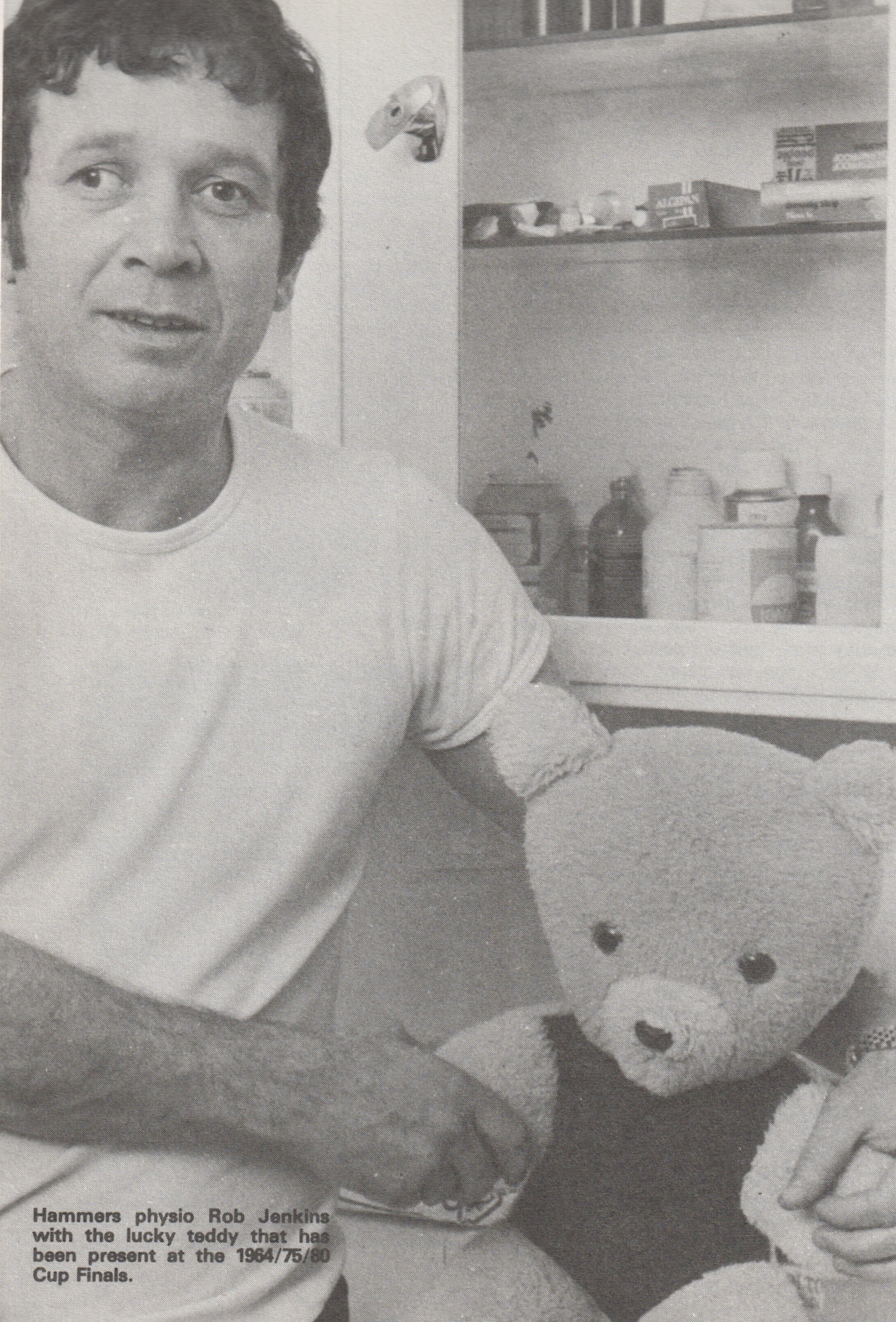
“Billy Bonds had been struggling with a groin strain all season and we had a few more knocks and niggles ahead of a difficult quarter-final at Arsenal. I was working flat out trying to get everyone fit for Highbury.
“Their double-winning manager Bertie Mee had known my Dad from the medical corps, while I’d been at college with the Gunners’ physiotherapist Fred Street, who we ended up beating twice in big FA Cup matches within the space of five years. We had a good rivalry!
“Alan Taylor came in to make only his second-ever start for the Club and he scored two goals in the thick mud. Back then, every quarter-final was played on the Saturday afternoon and the Daily Mirror’s football columnist - Harry Miller - tried predicting all four results.
“But he guessed them all incorrectly and, as we waited in reception for the team-coach after our 2-0 win, he came walking though Highbury’s marble halls. ‘Oi, Harry,’ I shouted. ‘What do you know about football? You got all four matches wrong!’ He got the right hump.
“Following a goalless draw at Villa Park, another two Alan Taylor goals helped us beat Ipswich Town in a semi-final replay at Stamford Bridge (2-1), to set up our final against Fulham.
“The closest I’d got to Wembley with West Ham was in the 1972 League Cup, when we got knocked out in the semi-finals after playing four games against Stoke City. Bobby Moore memorably saved a penalty in the second replay at Old Trafford (2-3) after Bobby Ferguson had gone off with concussion.
“For me, it was so sad that ‘Mooro’ would now be playing against us for Fulham because the powers that be - at the time - should’ve done everything to keep him at Upton Park. Bobby should’ve been given ambassadorial status after all that he’d done for West Ham United, England and the game of football. Tragically, he passed away aged just 51 and, in June 1993, I sat in Westminster Abbey at his Memorial Service thinking: ‘Things certainly shouldn’t have happened as they did.’”

In the run-up to Wembley, though, Rob certainly found himself on the right wavelength when it came to one well-known BBC Radio One disc-jockey and Hammers fan.
“Noel Edmonds announced on air that he couldn’t get a ticket,” he reveals. “Unfortunately, my cousin Robin was seriously ill so we gave his spare to Noel, who ended up sitting next to my wife, Rosalind. He was really grateful and, on the Monday after the final, Noel dedicated an Animals song to the family.
“Out of all the injured players, the one I felt most sorry for was Keith Robson. Since signing from Newcastle United in September 1974, he’d been a revelation before getting a serious dead leg.
“I’d arranged an appointment with Alexander Law - the Club’s honorary consultant - to see if we could get him fit for Wembley. Never the best time-keeper, ‘Robbo’ kept us waiting for an hour, before casually strolling in with his mate, Mickey Woolf. ‘Never turn up late for someone like Mr Law again,’ I warned as we headed back to Chadwell Heath now knowing he’d really be struggling to make the final. ‘Sorry, Rob,’ he replied before immediately asking to stop outside the bookies because he’d a tip for a horse. ‘No, you can’t!’ I fumed, driving straight to the training ground.
“Poor Robbo’s day got yet worse, when his horse won hands down!
“Having recovered from their injuries, Bobby Gould and Pat Holland desperately wanted to play. With Robbo missing out altogether, Patsy got the nod over substitute ‘Gouldie’, but I still had to tightly-strap his ankle.

“Nicknamed ‘Sparrow’ because of his spindly legs, I’ve never seen anyone as fast as Alan Taylor over ten yards,” contends Jenkins analysing the £40,000 Rochdale rookie, who then memorably bagged yet another double against Fulham (2-0). “Score two goals in an FA Cup quarter-final, semi-final and final and you’ll always be remembered as a good footballer.
“We were expected to beat Fulham but the final turned out to be a dull game. When Alan scored his first goal, though, everyone on the Wembley bench jumped up except John and Ron, who were like twins. They’d never argue or show any emotions such was their intensity from the first whistle until the very last.”
Having followed in his father’s footsteps with a fantastic FA Cup triumph, Jenkins was again on duty when the Hammers beat Fred Street’s Arsenal (1-0) in the 1980 final.
Then, after zipping up his medical bag for the final time in 1990, Rob continued to treat both the local community and ex-players before finally closing his iconic Green Street clinic back in 2015.
Today, the 86-year-old still keeps himself active, rising at dawn to walk Dolly - his beloved, ageing Jack Russell/Collie-cross mongrel - around the local park in Redbridge.
“Anyone following the Hammers knows that West Ham United has always been about its ups and downs,” concludes Rob as he heads home to dinner with Rosalind. “I was very lucky to be at the Club during a wonderful era - I certainly enjoyed all the ups, while those cup runs were simply magical…”
